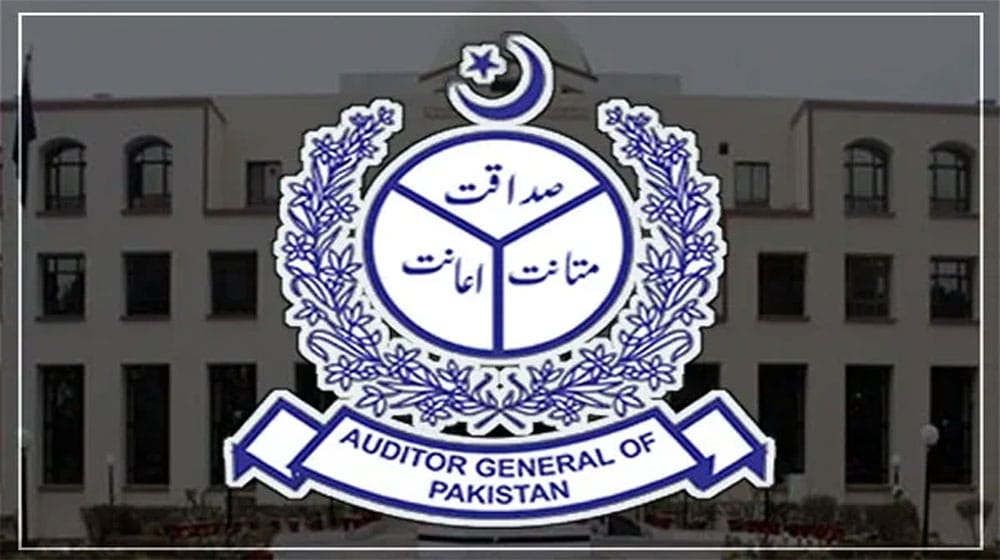The Auditor General of Pakistan (AGP) has strongly recommended the Federal Board of Revenue (FBR) to ensure that customs duty drawback should not be more than the actual duty paid by the exporter.
The latest audit report of the AGP on customs duty drawback for 2011 issued to the FBR revealed that timely issuance of duty drawback has been ensured through Rule 222 of the Customs Rules, 2001 which provides a timeframe for processing and payment of duty drawback. Three field formations of customs processed duty drawback claims with delays ranging from 30 days to 2,614 days. It was also observed that 296,388 cases involving an amount of Rs. 25,825.96 million remained unprocessed without recording any reasons.
An analysis of duty drawback cases received during Audit revealed that Model Customs Collectorate (MCC), Sialkot could process only 72%, MCC (A&F) Peshawar 50%, and MCC, Allama Iqbal International Airport, Lahore 82% cases during the period under audit.
As per the definition of duty drawback, it is the “repayment in whole or in part of the customs duties paid on the import of any goods”. It means that the duty drawback cannot be more than the duty paid at the import stage. It is recommended that the rates of duty drawback may be revisited by FBR in order to rationalize the rates of duty drawback in view of the decreasing duty rates, especially in the wake of Free Trade Agreements.
Further, FBR may examine the issue in detail to ascertain the quantum of duty drawback paid in excess due to this discrepancy. It is also recommended that the duty drawback should not be more than the duty paid by the exporter.
The export to Afghanistan through land routes was removed from the definition of exported goods under rule 220(d) & (e) of Customs Rules, 2001. Duty drawback to such exporters was therefore not admissible. The audit has observed that the payment of duty drawback by MCC Peshawar to exporters engaged in export to Afghanistan wasRs 555.64 million.
The audit noted 2,328 cases where duty drawback was paid in excess than due resulting in excess payment of Rs 91.02 million. In 872 cases, excess payment of Rs. 67.08 million was due to applying excess rates of duty drawback as notified in different SROs. In 1302 cases, export development surcharge was not deducted by the banks resulting in excess payment of duty drawback of Rs. 18.22 million.
Two field formations paid duty drawback of Rs. 5.72 million in 154 cases where the foreign exchange was not or less received or bank credit advice issued after 07 July 2017 when the commercial bank was defunct.
Audit observed that an amount of Rs 104.39 million was paid as duty drawback in time-barred cases. The delay in filing claims ranged from 9 days to 2,481 days. Further, these claims were filed by the exporters without requesting the customs authorities for condonation of delay.
Duty drawback was paid to businesses which were already availing the facility of import under concessionary regimes like Duty & Tax Remission for Exports, Manufacturing Bonds and Export Oriented Units without confirmation of procurement and utilization of duty-paid materials in exported goods. Since no duty was paid by these units at the import stage, therefore payment of duty drawback was also not admissible to them. The audit pointed out 65 such instances involving an amount of duty drawback of Rs. 149.91 million.
Audit observed that cases of duty drawback pertaining to years 2012 to 2018 were pending with FBR. The audit further observed that there was no mechanism in place to dispose of these cases on a first in first out basis. In the absence of any criteria for the selection of duty drawback cases for payment, cases are randomly processed which is against the principle of equity.
Audit observed several significant internal control weaknesses. For instance, the audit was not provided any proof of audit of duty drawback cases either by Directorate of Internal Audit or Directorate of Post Clearance Audit. The amount of duty drawback was reported less by MCC, Peshawar and Sialkot to FBR by Rs. 559.87 million in 12,262 cases, Audit report added.
Courtesy: Pro Pakistani

